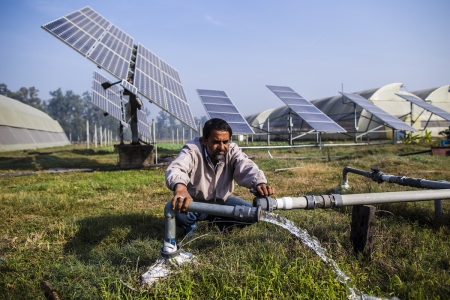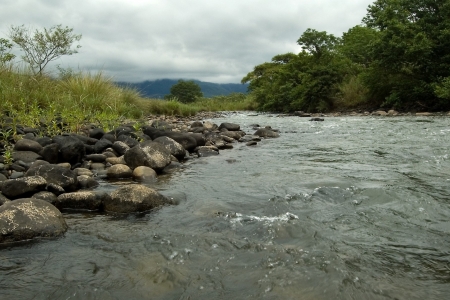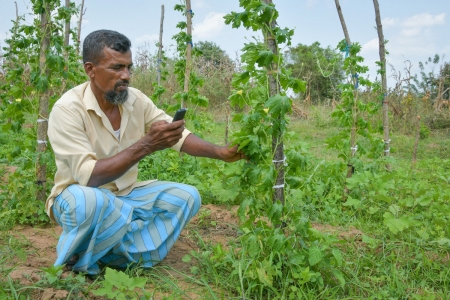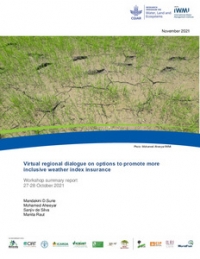Virtually every basin in which WLE operates crosses borders, adding a layer of complexity to the dynamics of water management. In 2014, the project addressed a set of critical issues related to transboundary water management. A first component of the project focused on measuring the degree of water cooperation in transboundary waters, with an eye toward supporting implementation of an SDG target on improving water cooperation. The component is also developing a framework of assessment for basin plans in transboundary waters and applying it to derive lessons concerning spatial and temporal basin plans. Findings are being ground-truthed through interactions with various actors in selected basins such as the Zambezi, Inkomati, Pungwe, Shire and Limpopo. A second component of the project is looking at how donor project cycles and logframe approaches affect project implementation in projects focused on transboundary water cooperation. This component is also classifying agreements related to Syr Darya tributaries and developing a paper analyzing this set of agreement to understand trends and derive lessons. A third component is working to understand how impacts of foreign direct investment affect power relations in the Nile. In 2015, the project will make a bold transition toward greater connection with on-the-ground institutional development in small transboundary catchments with particular focus on those in Africa. A first component of work in 2015 will place focus on smaller scale water cooperation which tends to much more practical. This component will seek to foster progress by informing and learning from water cooperation at the level of transboundary tributary or catchment. There is currently considerable important but perhaps neglected activity at a transboundary catchment level (e.g, Inkomati, Songwe, Shire, Pungwe basins), which presents an important opportunity to support ongoing development through tailored transboundary waters research that is focused on key topics such as i) organizational options, ii) benefit-sharing options, iii) fit-for-purpose bundles of institutional instruments that respond to specific conditions in specific basins. Dialogue has been initiated between project members and authorities in mentioned basins, and the project will seek to ensure outputs inform ongoing developments on-the-ground. Importantly, despite bias toward southern African basins, it is important to note that findings from such basins will be used to more broadly inform transboundary developments in other geographies including WLE focal regions. Notably, as well, this work has expanded to West Africa (Volta Basin), a WLE focal region. A second component of work in 2015 will seek to further mine the database of global transboundary water agreements and explore broader issues related to how scale influences the nature of transboundary water cooperation. Particular issues of focus in the database will be water allocation and benefit-sharing. The examination of how scale influences the nature of cooperation will be used to derive recommendations that are applicable to transboundary basins globally, including WLE focal regions. Uptake In addition to these more research-focused areas of work, uptake will be promoted through several channels. First, collaboration is active and ongoing with agencies such as the Inkomati Catchment Management Agency in South Africa, ARA-Zambeze in Mozambique, and the Shire Basin Development Programme in Malawi. Second, collaboration at a basin-level has been secured through Zambezi Watercourses Commission, as the Executive Director of ZAMCOM has agreed to co-edit a Zambezi basin book with myself and others; some catchment-focused outputs will be channeled through this book, and it is hoped influence Zambezi basin decision-making in the process. Third, relations with the international community focused on water such as World Bank, GIZ and SIWI are good and there is knowledge of this project’s work.
menu

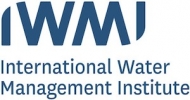
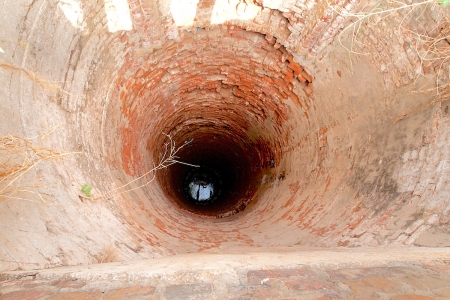


/index.jpg?itok=EzuBHOXY&c=feafd7f5ab7d60c363652d23929d0aee)


